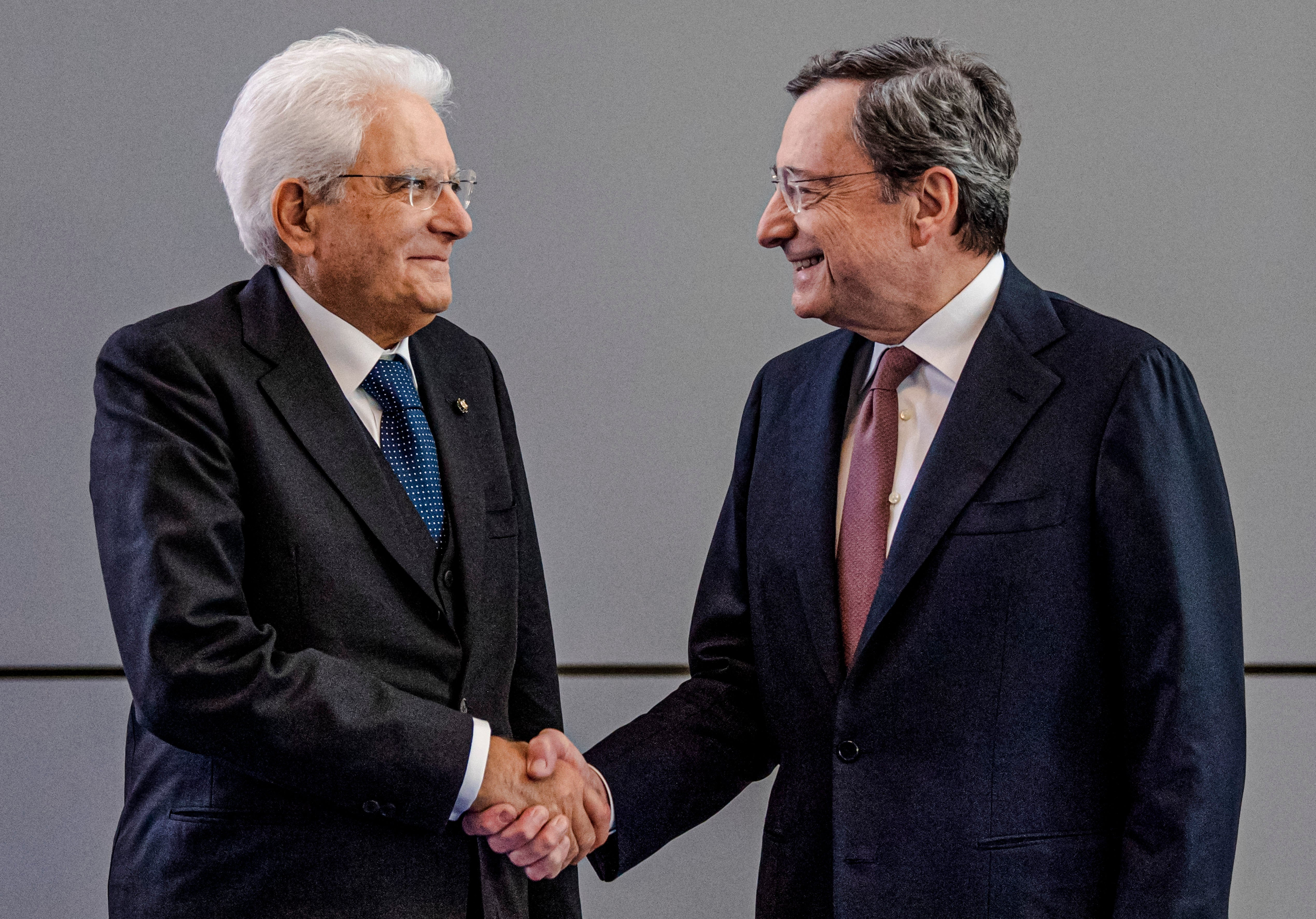Italy looks to “Super Mario” Draghi to end political crisis
Italy’s president is expected to ask Mario Draghi, the former European Central Bank chief credited with saving the euro, to try to lead Italy through the coronavirus pandemic

Your support helps us to tell the story
From reproductive rights to climate change to Big Tech, The Independent is on the ground when the story is developing. Whether it's investigating the financials of Elon Musk's pro-Trump PAC or producing our latest documentary, 'The A Word', which shines a light on the American women fighting for reproductive rights, we know how important it is to parse out the facts from the messaging.
At such a critical moment in US history, we need reporters on the ground. Your donation allows us to keep sending journalists to speak to both sides of the story.
The Independent is trusted by Americans across the entire political spectrum. And unlike many other quality news outlets, we choose not to lock Americans out of our reporting and analysis with paywalls. We believe quality journalism should be available to everyone, paid for by those who can afford it.
Your support makes all the difference.Italy’s president is expected to ask Mario Draghi the former European Central Bank chief credited with saving the euro, to try to lead Italy through the coronavirus pandemic after last-ditch talks among squabbling politicians failed to produce a viable new coalition.
President Sergio Mattarella summoned Draghi, 73, for a noon meeting Wednesday at the Quirinale Palace. Mattarella was expected to ask Draghi to try to form a non-political government to replace caretaker Premier Giuseppe Conte’s coalition of the 5-Star Movement and Democratic Party.
Conte was forced to resign last month after ex-Premier Matteo Renzi pulled his ministers of his small, centrist Italy Alive party from Conte’s government. Renzi, whose nickname is “il rottamatore," or “the demolisher," complained among other things about Conte’s plan to spend more than 200 billion euros ( $240 billion) in EU funds and loans to help the economy recover from the pandemic.
Draghi, known as “Super Mario” for having rescued the common currency during Europe’s debt crisis, had been rumored as a possible choice to lead a non-political government if Conte was unable to find new parliamentary support.
A somber Mattarella told the nation Tuesday night that while early elections were a possible outcome and a necessary “exercise in democracy,” they were ill-advised at this crucial time in Italy’s history. Italy, with over 89,000 confirmed virus deaths, has the second-highest COVID-19 death toll in Europe after Britain. It is trying to ramp up its vaccination campaign and must report back to the EU how it plans to spend the recovery funds.
“It is therefore my duty to make an appeal to all the forces in the parliament so that they grant the confidence to a high profile government not linked to any political force,” Mattarella said.
Italy, the third-largest economy in the European Union, had been heading into a recession even before it became the first country in the West to be hit by COVID-19 last February. The ensuing economic devastation has only made matters worse, with gross domestic product falling 8.8% last year and nearly 450,000 jobs lost, national statistics agency ISTAT reported this week.
After the government crisis erupted, Mattarella asked the president of the lower Chamber of Deputies, Roberto Fico, to sound out political leaders to see if an alternative coalition could be formed. Fico reported back Tuesday evening that he had failed, and Mattarella then summoned Draghi.
Renzi, who was premier from 2014-2016, blamed Conte’s forces for the failed negotiations, saying they had rejected his proposals. He suggested he was pleased with the outcome, praising Mattarella’s “wise” decision.
The right-wing opposition, which had been leading the polls prior to the government tumult, still pressed for an early election, though the Forza Italia party of ex-Premier Silvio Berlusconi indicated its support for a “high-profile” government.
Draghi, 73, is perhaps best known for his intervention as ECB chief during the peak of Europe’s debt crisis in 2012. As Italy was facing unsustainably high borrowing costs that threatened its financial stability, Draghi said in July 2012 that the ECB was ready to do “whatever it takes” within its mandate to preserve the euro.
It proved to be a turning point for Europe.
Draghi, a Massachusetts Institute of Technology-trained economist, had led the Italian central bank from 2005-2011 when he was tapped to lead the ECB, a job he held until 2019. Prior to that, he had been a vice chairman and managing director at Goldman Sachs International in London and an executive director at the World Bank.